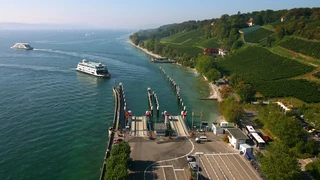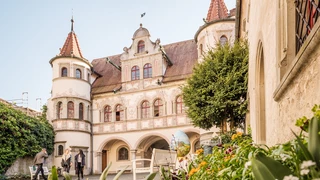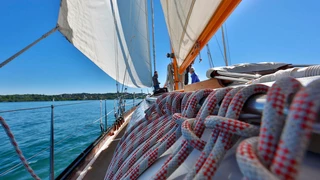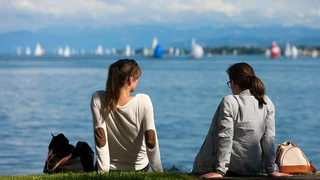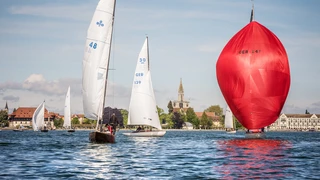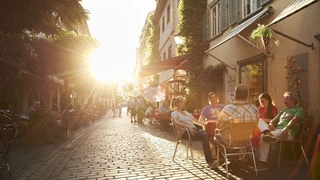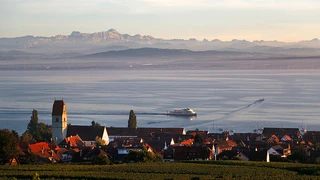Interesting facts
about the four-country region of Lake Constance
Telephone & mobiles
National dialling codes:
- Germany 0049
- Austria 0043
- Switzerland 0041
- Liechtenstein 00423
From 15 June 2017 Europeans have the ability to make same-cost mobile calls and data downloads irrespective of which EU country they are in. That means that there are no extra roaming charges for using your phone in Germany, Austria or Liechtenstein. Please pay attention that this is not valid for Switzerland (!). UK mobile customers will be able to benefit from this agreement until 2019, when the country is expected to exit the EU.
Road transport
Germany:
There are no road charges in Germany. Speed limits: in towns 50 km/h (30 mph), main roads 100 km/h (60 mph). Motorways recommended speed 130 km/h (80 mph), no general limit. Blood alcohol limit: 0.5. There is no daytime running lights requirement.
Austria:
In Austria tolls apply on motorways and highways. The tax disc (“Pickerl”) is required in Vorarlberg on the Rheintal motorway (A14) and the Arlberg highway (S16). Holidaymakers can purchase a ten-day disc (€ 8.90), a two-month disc (€ 25.90) and an annual disc € 86.40. Anyone travelling without the tax disc will be required to pay a fine of € 120. Speed limits: in towns 50 km/h (30 mph), main roads 100 km/h (60 mph), motorways 130 km/h (80 mph). Blood alcohol limit: 0.5. The daytime running lights requirements was lifted in Austria in 2008.
Switzerland:
Motorways in Switzerland are subject to a toll. The tax disc is valid for one year (CHF 40). The motorway tax discs can be purchased at the borders, at petrol stations or from automobile associations. Anyone who intends to drive very little in Switzerland can use the network of main roads. Speed limits: in towns 50 km/h (30 mph), main roads 80 km/h (50 mph), motorways 120 km/h (75 mph). Blood alcohol limit: 0.5 Daytime running lights are required in Switzerland which means that lights must be switched on both at night and during the day.
Liechtenstein:
There are no road charges in Liechtenstein. Speed limits: in towns 50 km/h, main roads 80 km/h, motorways 100 km/h. Blood alcohol limit: 0.5. Daytime running lights are required in Liechtenstein.
Car ferries
The Bodensee-Schiffsbetriebe operates between Friedrichshafen and Romanshorn. The ferry takes 45 minutes to cover the 8 mile journey (hourly service all year round, no night service). The Konstanz-Meersburg ferry line is operated by the Konstanzer Stadtwerken: The 2.8-mile journey takes quarter of an hour. Up to six ferries travel back and forth. Non-stop at peak times, hourly service through the night.
Bodenseeschifferpatent
To operate a craft with a machine drive with an output in excess of 4.4 kW and for a sailing vessel with a sail area in excess of 12m², a sailing licence is required. A normal 6 HP motor boat does not require a licence and can be hired in numerous locations. It is also possible to acquire a so-called holiday licence which is valid for up to one month (in one single stretch).
Emergency services
Germany: police, fire brigade and ambulance service 112
Austria: Police 133 | Fire brigade 122 | Ambulance service 144
Switzerland+Liechtenstein: Police 117 | Fire brigade 118 | Ambulance service 144
European Emergency services: 112
Medical information
There are no particular health risks in any of the 4 countries which go beyond the usual holiday complaints such as sun burn, etc. However, sufficient protection must be taken against tick bites as the Lake Constance area is a tick-borne encephalitis risk area and Lyme disease can also be contracted. Health care around the lake is good. Within the EU and in Switzerland, emergencies are treated free of charge upon presentation of the European health insurance card. Any higher costs that might be incurred due to different tariffs in Germany, Austria and Switzerland must be paid for by the traveller.
Language
The offical langauge in Germany, Austria, Switzerland and the Principality of Liechtenstein is German. Dialects nevertheless vary considerably from one region to another. For example, Swiss German is spoken in Switzerland which is derived from Alemannic, although the written language is High German.
Prices & currency
Prices vary considerably throughout the Lake Constance area. A coffee by the lake is more expensive than in the surrounding area. The same applies to accommodation. Prices in Switzerland and Liechtenstein are somewhat higher. Unlike in the Euro states of Germany and Austria, the currency in Switzerland and the Principality of Liechtenstein is the Swiss franc (CHF). In Switzerland and Liechtenstein, euros are accepted in most places.
Customs
Lake Constance is a border region. For citizens of the EU, there are rarely any controls between Germany and Austria; due to identification requirements, all travellers in the Lake Constance area are nevertheless required to carry their personal identity documents.
When entering Switzerland and Liechtenstein, it should be noted that the following goods can be imported duty-free: 200 cigarettes, 2l alcoholic drinks up to 15% vol. and 1l with a higher alcohol content, other goods with a value of up to 300 CHF.
Visa / entry requirements
Switzerland:
Every traveller must be in possession of a valid passport. For stays of more than 3 months, a visa is required. If you plan to stay for less than 3 months, a valid passport is sufficient. Travellers from the EU can also enter the country using their personal ID card.
Liechtenstein:
There are no border controls between Switzerland and Liechtenstein. The entry requirements are the same as for Switzerland.
Germany:
Citizens of the EU states and Switzerland do not require a visa to enter the Federal Republic of Germany. In principle, all other foreigners require a visa to visit Germany, on condition that the visa requirement has not been lifted by the European Community.
Austria:
Citizens of all countries neighbouring Austria, of the EU member states and numerous other countries (e.g. Australia, Israel, Japan, Canada, New Zealand, the United States of America, etc.) do not require a visa to enter Austria. Citizens of all other counties require a visa.
Smoking policy
Switzerland:
Since 01.05.2010, smoking in enclosed spaces is prohibited in Switzerland if these spaces are open to the public or serve as a place of work for several people. This means that smoking is prohibited in restaurants, public buildings and offices. Smoking is also prohibited in public transport. Smoking is permitted in separate smoking rooms, outdoors and in private households.
Liechtenstein:
In the Principality of Liechtenstein, the Tobacco Prevention Act came into effect on 01.07.2008, prohibiting smoking in all public spaces.
Germany:
Since 1 July 2008, smoking bans apply in all federal states.
Austria:
Austria does not have a general smoking ban in the catering sector. For tobacco, the minimum age is generally 18 years.
